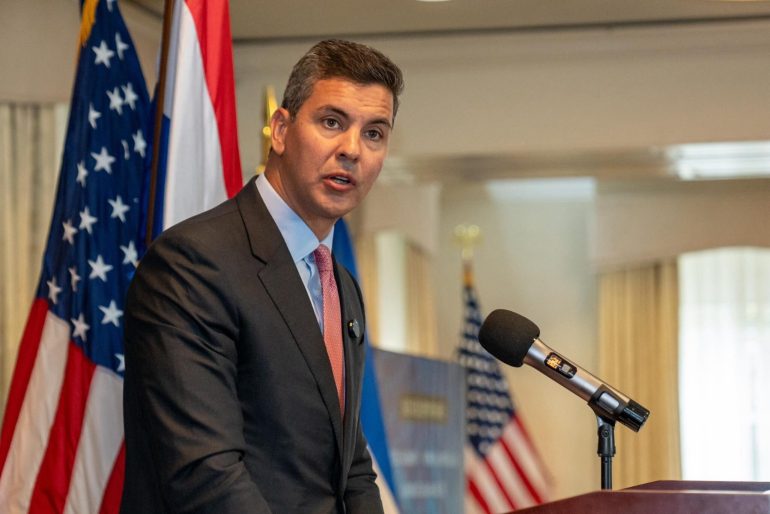Paraguayan President Santiago Peña affirmed that the tariffs announced by the United States affect Paraguay “to a lesser extent,” despite acknowledging that the US tariffs will have a global impact. He maintained that the Paraguayan economy maintains a growth horizon for the coming years.
“In relative terms, we are much better off than other countries that have seen significant tariff increases,” the president said in an interview with Argentina’s Radio Mitre, when asked about the impact on the Paraguayan economy of the tariffs announced by U.S. President Donald Trump.
The US president’s announcement regarding tariffs on imported products has had a global impact. In Latin America, the tariffs imposed were the lowest compared to other regions in the world, capped at around 10%.
“Not all countries are in the same trade and tariff situation,” Peña said when assessing this impact, noting that in Paraguay’s case, the country’s economy has been growing “without much incentive, other than the internal strength it is developing and market access.”
“Paraguay built its economy on competitiveness and adaptability, with a free exchange rate that adjusts to supply and demand, but clearly the foundation is the country’s fiscal stability, with the lowest public debt in South America and compliance with the fiscal responsibility law,” he added.
Stating that this global economic scenario “has caught Paraguay in a very good position,” he acknowledged that the country is “still very far from where we want to be” in terms of its level of development.
In this regard, he mentioned progress such as economic growth of more than 5% of its GDP in 2023 and the maintenance of a similar level of growth the following year, with low and stable inflation.
He also mentioned a significant decline in poverty levels in 2024, “with a very optimistic outlook for 2025.”
“We are making improvements to our tax system, attracting investment, promoting business, and public works, which this year is likely at an all-time high, with various projects in road infrastructure, hospitals, and education,” Peña added.
Regarding the global scenario, he emphasised that the last 150 years have seen the implementation of protectionist policies that have entailed adjustments, “but these problems have ultimately been overcome.”


